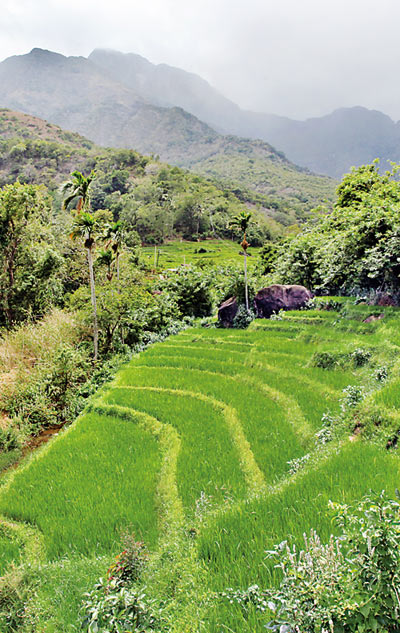Ban on weedicides affects production, increases costs to tea owners

Rice fields
Not affording the due place and appropriate remuneration to Sri Lankan intellectuals and researchers in the public sector could hinder the development process of the country while the investment, on the other hand, in research and development (R&D) appears to be very low. Research institutes in the country also appear to be obsolete. Navin Dissanayake, Minister of Plantation Industries made these comments this week when he participated in the “Meet the Minister” programme conducted by the National Chamber of Commerce of Sri Lanka. A tea smallholder, from Meepe, Galle – Gamini Walpitagamage during the discussion brought to the notice of the minister that weeding their plantations intrudes into profits as the government has stopped the import of weedicides for tea plantation.
Manual weeding is very difficult, costly and labour-intensive costing more than Rs. 1,000 per day per worker. He told the minister that to overcome this obstacle some tea smallholders offered various alternate substances to replace imported weedicides. He said some of these substances work well but they are afraid to deploy them for fear of after-effects, as these alternate substances are not scientifically researched. Mr. Dissanayake accepted this view and said that it would not be wise to do away with these chemical forthwith, without finding alternatives as it would seriously affect production. He assured the farmer that they are working on an alternative and soon that alternative would be available to the farmers, pointing out that if they do not act fast they would be handicapped in competing in the global market.
He said that in the 1960s and ‘70s the plantation sector was dominating the economy and they were the first exports like tea rubber and coconut. Since then, over the years this trend has changed globally including in Sri Lanka where agriculture is reduced to a lesser role in the economy. He said that the tea export sector has been affected by falling Russia and West Asian demand and therefore he indicated that the way forward is to seek new markets and strengthen the existing markets by maintaining high quality and product efficiency. The fact remains, he pointed out, that the tea cost of production is the highest among the tea producing countries. Another area of improvement is promotion where the export promotional budget is low in Sri Lanka. Pointing out that aggressive promotions in new markets like the US must be carried out, as there is huge potential in those countries for tea.
He said that they were able to convince the trade unions in the tea plantations that there should be a link between the wage increases and the productivity and pointed out that increased production could be the way out of the high cost of production. Coconuts has a high demand and he said that the growers should take advantage of this potential and that the government is launching coconut cultivation in the North and East in a big way. Like in apparel industry, in the tea plantations, he urged the coconut industry stakeholders to come together and provide solutions so that everybody benefits. He said research plays a vital role in developing the plantation industry. Research needs highly qualified professionals but in most government institutions in Sri Lanka staff is poorly paid whereas they could draw huge salaries overseas.


